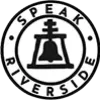 Watching your child grow and develop their speaking and listening during their first years is an exciting time! Understanding how early communication develops will help you support your child every step of the way.
Watching your child grow and develop their speaking and listening during their first years is an exciting time! Understanding how early communication develops will help you support your child every step of the way.
Birth to 6 Months: The Foundations of Communication
In their first weeks and months of life, babies communicate through cries, smiles, and movements. They recognize your voice and respond to familiar sounds, laying the groundwork for future language development. Interacting and talking with your baby is so important during this stage.
6 to 12 Months: Babbling and Early Sounds
Between six to twelve months, babies begin babbling and making repetitive sounds like “ba-ba” or “da-da.” They explore their vocal abilities and understand simple gestures such as waving bye-bye. You can encourage them in this stage through your facial expressions, words, songs, and silly sounds. Don’t be afraid to use baby talk yourself! Try taking turns back and forth making silly sounds. It’s fun, and it helps your baby develop early communication.
12 to 24 Months: First Words, Word Combinations, and Interaction
Somewhere between ages 1 and 3, children typically begin saying their first words. For example, they might say “buh” to mean several things (baby, book, bottle, etc.). Their first words are often names of family members or favorite objects. Babies start to follow simple instructions and gestures, making this an ideal time for introducing new words. Toddlers start putting words together (e.g., “more milk,” “mommy hat”) and start understanding more of what is said to them. Looking at favorite picture books is a fun activity to try at this stage, but don’t worry if they aren’t interested. Just talking to your little one about what is going on in the moment is also a great thing to do at this stage.
2 to 4 Years: Language Growth
By age two, children expand their vocabulary to over fifty words and begin using simple sentences. They ask questions and engage in pretend play, enhancing their communication skills. Encourage their curiosity by answering questions and participating in their imaginative play.
Every Child is Unique
Remember, every child develops at their own pace. While some children say their first word before their first birthday, other little ones don’t begin saying words until they are 3. All of this is normal. If you feel your child understands what you say to them, then don’t worry about their speaking skills. Resist the urge to compare them to other children their age. Trust your instincts as a parent and consult with a speech pathologist if you have concerns about their communication.
Your child is a wonderful, amazing human being, learning and growing with each new day.
Enjoy them and above all, HAVE FUN!
